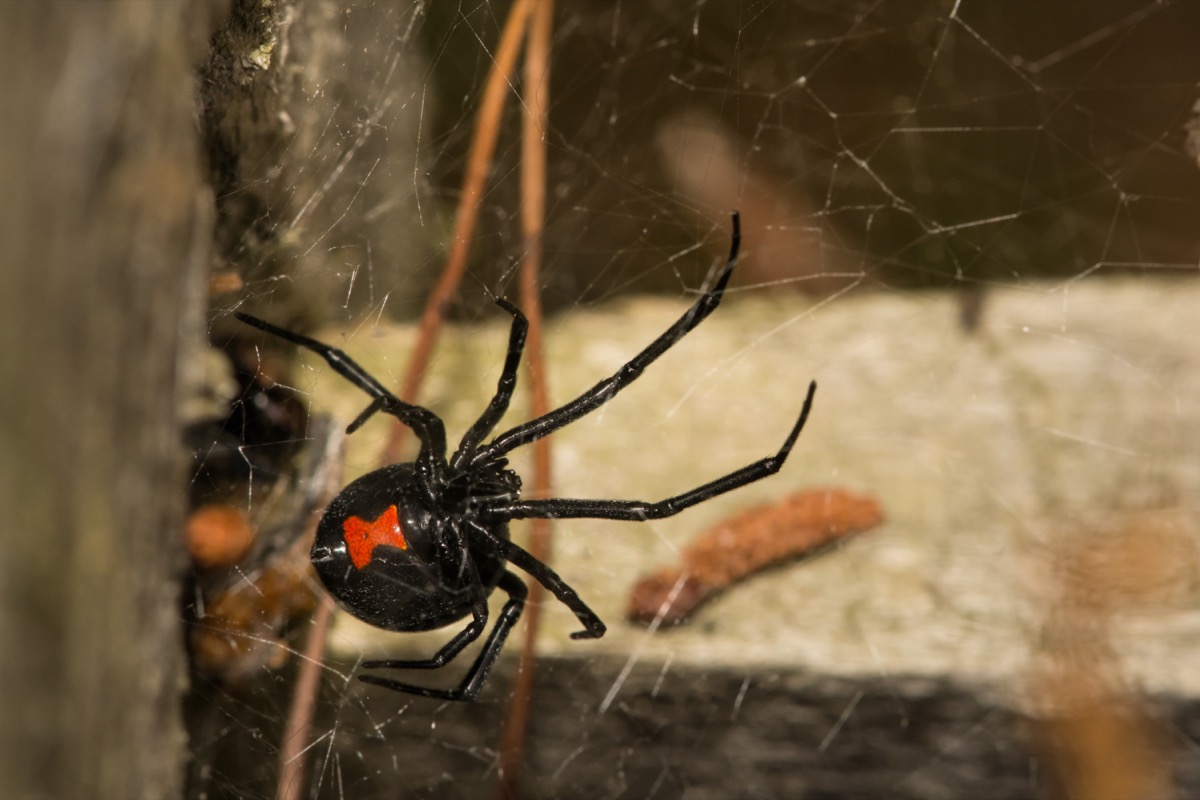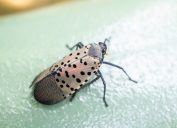This Deadly Pest Could Be Hiding in Your Bedroom, Experts Say
Bed bugs aren't the only things that could be biting you tonight.

Whether you're battling mice in your kitchen or dealing with carpenter bees laying waste to your wooden siding, pest infestations are an all-too-common occurrence. According to the most recent annual pest control industry report from Specialty Consultants, the industry has grown to approximately $9.4 billion in annual sales—up nearly half a billion from 2018. However, it's not just the usual suspects causing exterminator calls to skyrocket. There's a deadly pest that could be hiding out in your home without you even realizing it: the black widow spider.
According to a recent report published in the journal PLOS One, the northern black widow spider has significantly expanded its habitat over the past 60 years, with the spider's range now extending up through the northeastern United States and into Canada. According to a 2020 article from experts at The Brooklyn Hospital Center and St. Luke's University Health Network, black widow encounters rise most significantly in the United States in late summer and early autumn, meaning now's the time you're most likely to encounter one of these unwelcome arachnids. Unfortunately, in some cases, these pests will even make their way into homes—including your bedroom.

"Inside, they will be in cluttered areas and under siding or wall void," says Brett Craig, training manager for Arrow Exterminators.
That's not the only place they could be lurking, however. According to associate certified entomologist Michael Thome with Ehrlich Pest Control, black widows are often found "in seldom-used areas such as garages, basements, and crawl spaces," as well as behind shrubs, and underneath decking, stones, and outdoor furniture.
And if you do come in contact with one of these spiders, the effects can be devastating.
"Symptoms of a bite start within 20 minutes to one hour and can include pain and stiffness in the bite area, abdominal cramping, fever, chills, nausea, and vomiting," says Thome, who notes that anyone with a suspected black widow bite should seek immediate medical treatment.
RELATED: For more up-to-date information, sign up for our daily newsletter.
Thome explains that black widows' bites can be easily treated in most cases, with the venomous effects typically subsiding in under 48 hours with treatment. But, if left untreated, symptoms can persist for weeks. In some cases—particularly in those with weakened immune systems—the bites can even prove fatal. In fact, according to a 2006 paper published in the BMJ, two otherwise healthy people in Latvia—a 17-year-old boy and 27-year-old-woman—were killed by black widow spiders that year.
Fortunately, there are steps you can take to reduce your risk of coming in contact with one of these pests.
In addition to trimming back shrubbery and other vegetation and removing plant debris from around your home, Thome recommends "removing clutter in garages, basements, or sheds where the black widows like to hide," as well as sealing cracks in your home's exterior and wearing gloves when you're gardening. If you happen to see more than a few black widows around your home, however, your best bet is to call in a professional exterminator to treat your space. And for more ways to keep your home safe, make sure to ditch these 21 Household Items That Go Bad And Could Become Dangerous.





















